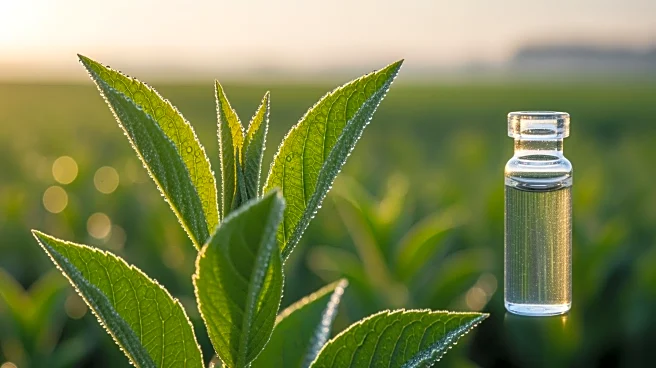What's Happening?
Syngenta Crop Protection and Amoéba SA have signed a Memorandum of Understanding to develop and commercialize biocontrol solutions for cereals and field crops in the EU and UK. The collaboration focuses
on using amoeba lysate from Willaertia magna C2c Maky to create a bio-fungicide that combats fungal diseases affecting wheat and other cereals. This innovation aims to enhance sustainability in farming practices and address pest resistance challenges. The partnership targets diseases like septoria tritici blotch and yellow rust, which significantly impact wheat yields in Europe.
Why It's Important?
This collaboration between Syngenta and Amoéba represents a significant advancement in sustainable agriculture, offering farmers new biological solutions to protect crops from fungal diseases. The development of a bio-fungicide using amoeba lysate is a breakthrough in biological crop protection, potentially reducing reliance on chemical pesticides. This innovation could lead to increased crop yields and reduced economic losses for farmers, particularly in regions heavily affected by wheat diseases. The partnership highlights the growing importance of biocontrol solutions in addressing global agricultural challenges.
What's Next?
Syngenta and Amoéba plan to negotiate a definitive distribution agreement by spring 2026, focusing on the commercialization of their biocontrol solutions. The collaboration aims to expand the application of amoeba-based bio-fungicides to other field crops, potentially broadening the impact of this innovation. Regulatory approvals in Europe are expected in the coming months, which will be crucial for the product's market entry. The partnership may also explore further applications of amoeba lysate in agriculture, paving the way for more sustainable farming practices.
Beyond the Headlines
The use of amoeba lysate in crop protection represents a shift towards more environmentally friendly agricultural practices. This innovation could influence regulatory policies, encouraging the adoption of biological solutions over chemical pesticides. The collaboration between Syngenta and Amoéba may inspire other companies to explore similar partnerships, fostering innovation in the biocontrol sector. The focus on sustainability aligns with global efforts to reduce the environmental impact of agriculture and promote food security.









